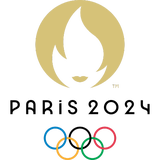
AP Interview: Europol ties together tennis match-fixer rings
PARIS (AP) — European police agency Europol says it has identified links between match-fixing gambling syndicates being unraveled in Spain and Belgium that are thought to have paid off dozens of players and corrupted lower-level tennis tournaments on a massive scale.
Pedro Felicio, who heads Europol's Economic and Property Crime unit, told The Associated Press in a phone interview that there are "strong indications" the fixers were also involved in volleyball, beach volleyball, and basketball.
European police investigators are still trying to determine the extent to which gangs broken up in June and October in Spain and in June in Belgium may have worked together.
However, Felicio said cross-checks of suspects' names, their contacts, company details, places and people they frequented and phone records pointed to ties.
He said: "We see these links. They exist."
Belgian investigators traveled to France this week for the police questioning of four low-ranked French tennis players suspected of having been paid to fix matches by Grigor Sargsyan, a 28-year-old Armenian alleged to have run the Belgium-based match-fixing operation. He is being held in a Belgian jail. Investigators say crooked players knew him as "Maestro."
The four French players — Jules Okala, 21; Mick Lescure, 25; Yannick Thivant, 31; and Jerome Inzerillo, 28 — were released from police custody on Wednesday evening. None operated in the highest spheres of tennis. The career-best singles ranking of any of them was 354, reached by Inzerillo in 2012.
The rings dismantled in Spain also involved Armenians. The group broken up in June, with 129 arrests in Spain and France , had "close contact with many tennis, beach volleyball, basketball, and ice hockey players," and bribed about 20 players to fix match outcomes that the group then bet on, Europol said at the time.
The second Armenian cell taken down in Spain in October also bribed tennis players to guarantee predetermined results and used the identities of thousands of citizens to place international bets on the matches. Police said 28 professional players, including one who participated in last year's U.S. Open, were linked to the ring.
The Belgium ring appears, for the moment, to have been even more extensive, believed to have paid at least 115 low-ranked players in more than half a dozen countries to fix games, sets and matches in exchange for payments of 500 to 3,000 euros ($570 to $3,400). Investigators have questioned players in Belgium, the Netherlands, Germany, Slovakia, and Bulgaria and are looking to question others, including both players and managers, in the United States, Chile and Egypt.
Felicio told the AP that European police are working to piece together the extent and strength of links between the various rings.
"These are kinds of loose networks," he said. "They have contacts between each other because they need the contacts that both of them have, sometimes to do money laundering, to do transportation of whatever, to contact someone that they wish to know to corrupt. So what we see is that the connections exist. But what is the structure? Is there a ring leader and then everybody falls in line and has specific positions? Or are these loose networks?"
"This is what still needs to be seen," he added. The investigations are "still very far from the end."
One possible indication of connections between the rings is they used "very similar" methods to place bets on matches they fixed, Felicio said. These included the use of so-called "mules," people paid either to place bets for fixers or who allowed their identity and bank details to be used so bets could be placed in their names.
"It's just about having access to a large number of small soldiers," Felicio said. "You can use their identity and then perform bets in their name so that this is never traced back to the organization."
